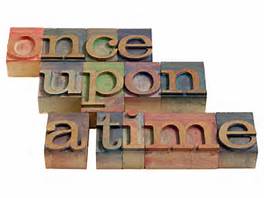Blog Archives
What IS storytelling? What IS NOT storytelling?

What IS storytelling? What IS NOT storytelling? These two questions opened the 9th conference on “Storytelling: Global Reflections on Narrative” I attended from the 10th to the 12th of July in Oxford (UK). As participants, we were asked to reply, and we gave completely different answers, depending on our academic field and personal experience.
We defined storytelling as an engaging and dynamic form of communication, which must not be boring at all. Moreover, we emphasised the fact that storytelling does not include only what is told, but also what is kept silent, what is not remembered, and what is changed, and that it encompasses many points of view, many different stories, and many different ways of telling the same story.
During the conference, each speaker contextualised storytelling in a different field: literature, history, sociology, communication, education, sciences, and even medicine; and we discussed the topic taking into account professional and personal experiences as well, thus getting a broad and inclusive overview of storytelling.
Storytelling is not only influenced by the discipline in which it’s studied or applied, but also by many other factors, such as background, culture, education, ethnicity, nationality, social class, gender, and age of storytellers and of the audiences.
Novels, advertisements, TV shows, etc. communicate a story using language, semiotic signs, stereotypes, metaphors, and rhetoric figures that are tailored for specific target publics. Moreover, stories usually reflect the social values and characteristics of the audiences. For example, in Japanese anime the homogeneity of the Japanese society is represented by the possibility each character has to become the protagonist of the story, whereas individualistic feature of the Western societies is depicted by the presence of only one main character in Western comics.
Medium may change the way we tell or listen to a story. We read novels in a sequential way, page after page from the beginning to the end, whereas we can read a story on social media in a relational way (as in mind mapping), jumping from one point to any other as we please. Moreover, in digital interactive documentaries and videogames, we (as audience) can even change the story.
Storytelling also differs in its applications: we can use it for conveying information or entertaining, but we can also use it for advocacy campaigns, education, and research. Indeed, storytelling can be a suitable technique for advocacy, due to its capability of engaging audiences emotionally and personally, and it is effective in involving students in school lessons as well, and in stimulating their critical thinking, communication and writing skills, creativity etc.
The use of storytelling in the research field is particularly interesting. By analysing either ancient books or new TV fictions, we can investigate the individual characteristics of authors as well as well the social beliefs, values, and imaginary of a specific historical period, and we can study how they changed over time. We can acquire similar data by collecting witnesses’ stories of a specific event, as well as asking the research subjects to write a narrative on a specific issue. For example, patients’ stories on how they perceive their disease and how it is affecting their quality of life can provide further information to improve our comprehension of the disease from a clinical point of view, understand patient-physician communication, or improve the health care system. Even collecting stories on digital media and videogames we can yield insights on individuals and social groups’ characteristics.
What is storytelling? What is not storytelling? Though it may be very difficult to give a concise and inclusive answer to these questions, we can say that storytelling provides many different opportunities and challenges in science and health communication as well as in research.
Find out more about the conference ‘Storytelling: Global Reflections on Narrative‘
Elena Milani – PhD student, Science Communication Unit.


